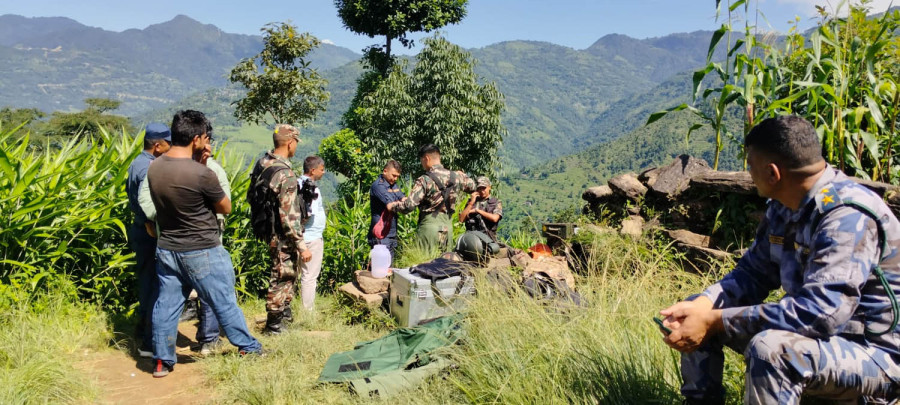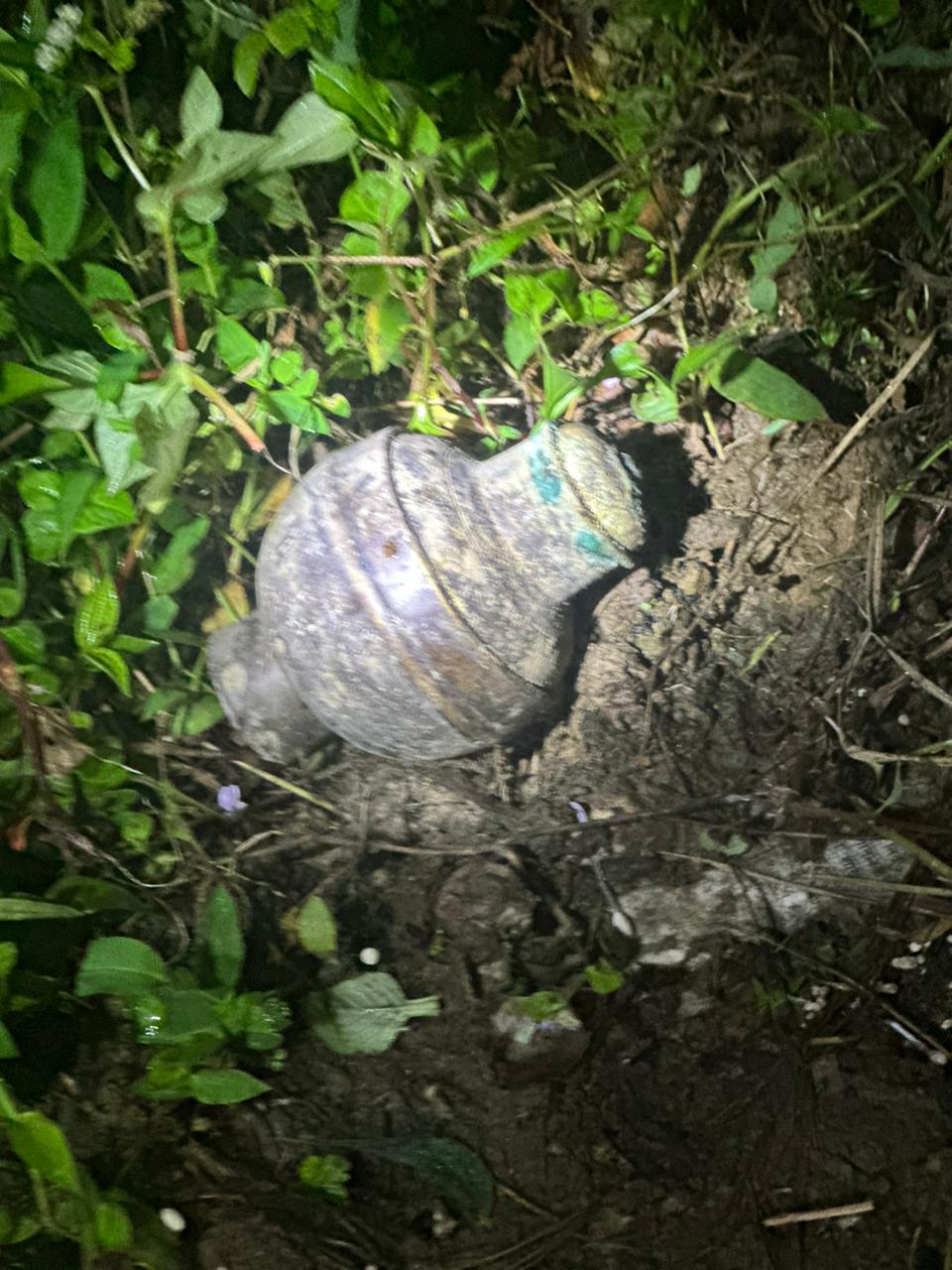Koshi Province
Blast of conflict-era explosive reopens old wounds
Two children were killed and two others were injured when an explosive suspected to be from war-era went off in Panchthar on Thursday.
Laxmi Gautam
Nine-year-old Dipsan Rai of Dadagaun in Panchthar’s Phalelung Rural Municipality-5 is unable to sleep well. He frequently cries in his sleep. “I am still frightened,” he says. He was injured when an explosive went off in Panchthar on Thursday. “I feel the explosive going off near my ear frequently.”
He was playing with his friends when a grenade went off, killing two of his friends. Dipsan Rai and Pawan Rai were injured.
The explosion of a war-era explosive has deeply traumatised Dipsan Rai. The explosive went off while the children were playing at the house of Maoist cadre Aitaraj (IB) Kerung. Dilip Sanwa’s children—eleven-year-old son Dipsan Sanwa and two-and-a-half-year-old daughter Princa—succumbed to their injuries.
Both Pawan and Dipsan Rai sustained shrapnel injuries in the incident. Pawan was taken to Koshi Hospital in Biratnagar while Dipsan Rai is receiving treatment at Panchthar District Hospital.
Deputy Superintendent of Police Hemanta Bhandari said that the children were injured in a grenade explosion. It is suspected that the explosive might have been hidden during the decade-long Maoist insurgency that ended in 2006.
An Improvised Explosive Device (IED) was also recovered near the incident site. A technical team of Nepal Army defused the IED on Friday.
Aitaraj Kerung is a Maoist activist. The Kerung family has been living in Phidim, the district headquarters of Panchthar, over the past 13 years. Gyan Bahadur Rai and his family have been living in Kerung’s house.
During the Maoist insurgency that started in 1996, Kerung was the party’s activist. According to political sources, Kerung’s house had been used as a ‘shelter’ by the Maoist rebels. Local residents suspect that the explosives were the remnants of the Maoist’s ‘people’s war’. The hidden grenade was recovered by the children and it went off while they were playing with it.
Nepal Army Spokesperson Gaurav Kumar KC said that based on the nature of the incident site, the explosives could have been hidden during the Maoist insurgency.
On Friday, Home Minister Ramesh Lekhak also said the bomb that exploded in Panchthar was a remnant of the Maoist war. According to him, the explosive that went off was a grenade. The home minister noted that the incident came days after the political parties resolved disputes over peace process-related issues and amended the law governing the transitional justice process. “It shows that conflict-era issues are still alive in our country. People are still losing lives in bomb explosions,” he said.
The ward 5 of Phalelung Rural Municipality comprises the then Prangbung VDC. Prangbung was hugely affected during the Maoist war. As many as 17 people were killed during the Maoist insurgency in Prangbung alone.

“Thursday’s incident made us recall those days of the conflict era,” said Bharat Kumar Khapangi, ward chairman of Phalelung-5. “We were about to forget the events in which the security forces and the Maoist rebels took lives of the local people.” According to him, the local people in Prangbung are in abject terror after the incident.
The villagers feel insecure after Thursday's incident. “The peace process had begun in Nepal some two decades ago. But the stray bombs continue exploding in various places of the country, killing innocent people,” said Kalpana Limbu, a local resident. “We heard that many explosives were hidden during the conflict period. We don’t know what will happen again.” She urged the government to clear the landmines and manage the stray explosives at the earliest.
Dipsan Sanwa was an eighth grader at local Kalika Secondary School. He completed the second terminal exam the previous day of the explosion. His friends are in panic now.
Dilip Sanwa, who lost his son and daughter, is abroad for employment. The mother of the deceased is almost unconscious after the incident. The dead bodies are kept at the district hospital in Phidim. The police are planning to hand over the bodies after Dilip came home from the foreign employment.
The local people demanded to probe into the explosion and take judicial action against those who left those explosives. They also demanded compensation to the bereaved family and provide treatment to the injured children.
The National Human Rights Commission said it could be an explosive left negligently by one of the warring sides of the time. The constitutional body said that it was unfortunate that such incidents continue to take place 18 years after the signing of the Comprehensive Peace Accord in 2006 even as the political forces agreed to clear the remnants of the explosives within two months.
Point 5.1.4 of the accord states that “both sides shall assist each other to mark landmines and booby-traps used during the time of armed conflict by providing necessary information within 30 days and defuse and excavate them within 60 days.”




 17.81°C Kathmandu
17.81°C Kathmandu















